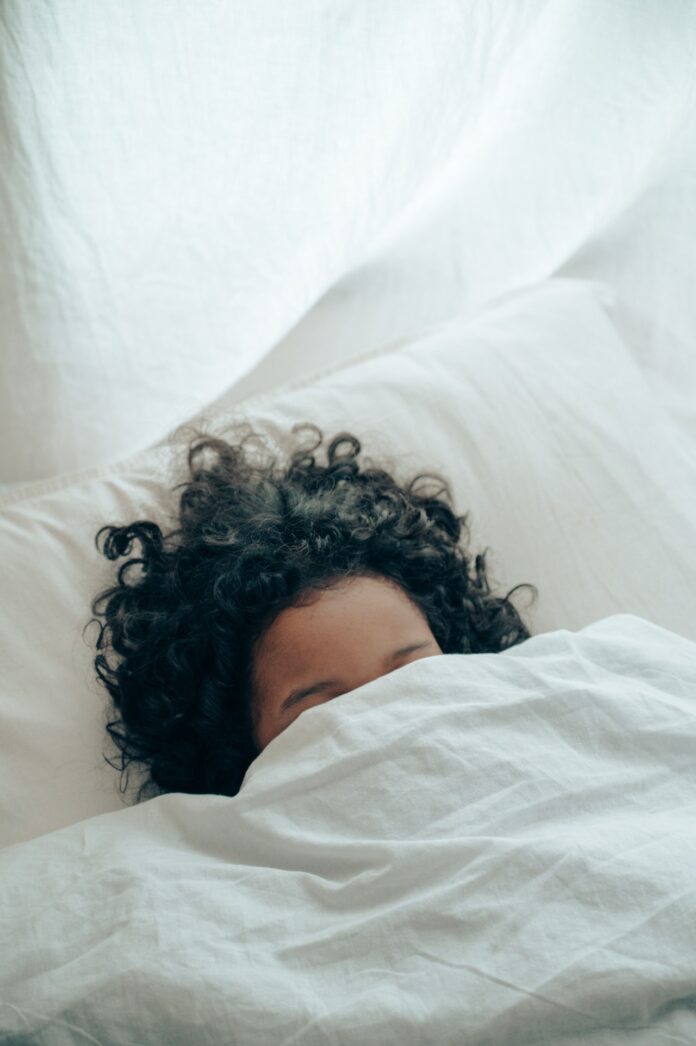Expert reveals the benefits to sleeping on your back, including reducing back pain and preventing heartburn
On average, we spend around one-third of our lives resting or sleeping, so sleeping in a supportive and comfortable position is a top priority for our health and well-being. Sleep expert Kiera Pritchard from Eachnight Mattresses reveals precisely how to train yourself to fall asleep on your back and the multiple health benefits.
What is the healthiest way to sleep?
Sleeping on your back is the most recommended position because the vertebrae in your back can align naturally in a neutral position without any kinks or curves. Sleeping on your back may be healthier for your spine whereas sleeping on your right side is beneficial for your heart. Stomach sleeping is the only position that is considered unhealthy as it is very stressful on your spine.
Does sleeping on your back help with back pain?
Back pain and sleep can exist in an ongoing cycle. If you have existing back pain, you might be getting less sleep because you are being woken by the pain, and the lack of sleep can also contribute to back pain because your body does not have enough time to restore its tissues while you sleep. A recent study found living with chronic pain can cost a person 42 minutes of sleep and acute pain episodes can cost 14 minutes of sleep.
Everyone’s body is different, and some positions may be better for you based on your height, weight, or previous injuries, but back sleeping is the most recommended position for those with back pain.
What are the worst sleeping positions for lower back pain?
The great majority of people do not sleep on their backs – 74% of people are side sleepers and only 16% of people are stomach sleepers. Sleeping on your stomach is one of the worst positions for back pain, as it puts unnatural pressure on your spine. It forces your neck to rotate to either the right or left side and this position can compromise the flow of blood, lymph, and spinal fluid and may cause joint pain.
If you struggle to sleep on your back, side sleeping or sleeping in the fetal position is preferable to stomach sleeping. Side sleepers who cannot make the change to back sleeping are encouraged to use a pillow between their knees which aligns the hip flexors and neutralize the spine. Snorers should also sleep on their side, as back sleeping can make snoring worse.
What are the benefits of back sleeping?
Aside from helping reduce back pain, back sleeping has a variety of other health benefits, for example:
- Back sleeping helps prevent heartburn and acid reflux.
- Dermatologists recommend back sleeping for wrinkle reduction. Back sleeping does not put any unnecessary pressure on the face while you sleep, so it will not cause creases which lead to wrinkles.
- Back sleeping is a good choice for people with colds and allergies because it promotes drainage of the fluids in the sinuses.
What is the best way to sleep on your back?
Only 10% of people sleep on their backs and most have had to train themselves to sleep this way comfortably. You can try training yourself to sleep on your back by the following process:
- It may feel unnatural to sleep on your back at first, so try doing something enjoyable in this position for several nights, for example, listen to your favourite album or podcast while lying comfortably on your back. These exercises will help train your mind to associate this position with comfort.
- Use pillow props. Many people feel vulnerable when sleeping on their backs, but you can counteract this by recruiting an array of pillows to support you. Most people feel supported with one pillow under each arm and one under the knees.
- Persistence. Even if you fall asleep on your back, you will likely wake up in a different position. When you wake up, just flip back to your back and try again. Eventually, you will spend most of your time sleeping on your back.
Is it better to sleep on your back without a pillow?
Back sleepers need a pillow to prevent their neck from dipping down uncomfortably. A pillow maintains neutral spinal alignment and eases discomfort, so we recommend memory foam pillows as they can be moulded to fit a variety of sleep needs.
Source: https://eachnight.com/mattress-guides/best-mattress/ who provided the expert commentary.
Help keep news FREE for our readers
Supporting your local community newspaper/online news outlet is crucial now more than ever. If you believe in independent journalism, then consider making a valuable contribution by making a one-time or monthly donation. We operate in rural areas where providing unbiased news can be challenging. Read More About Supporting The West Wales Chronicle























